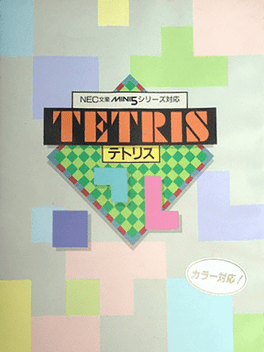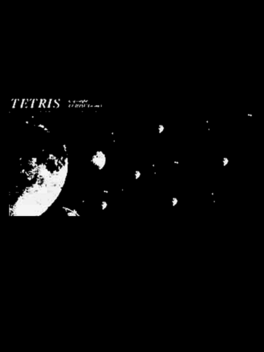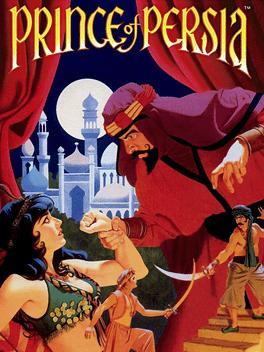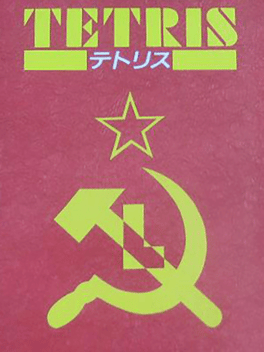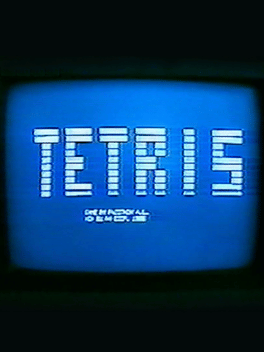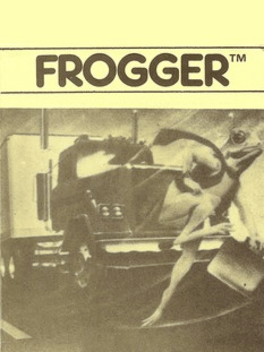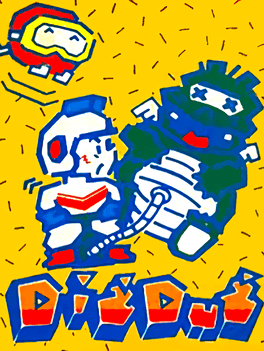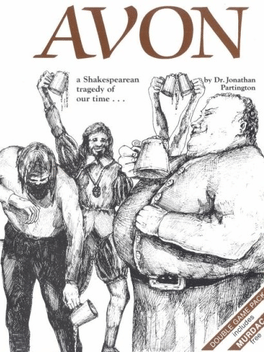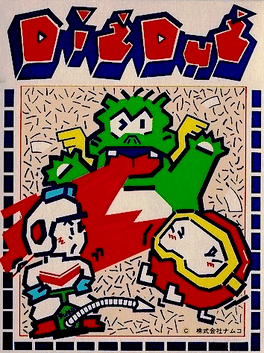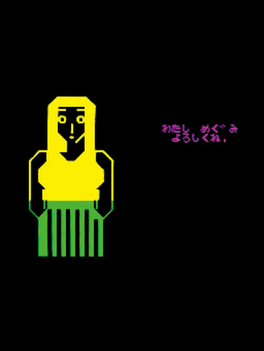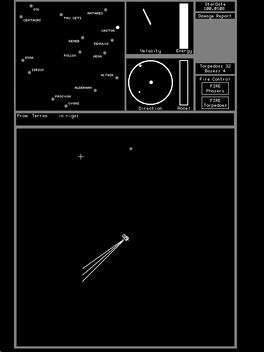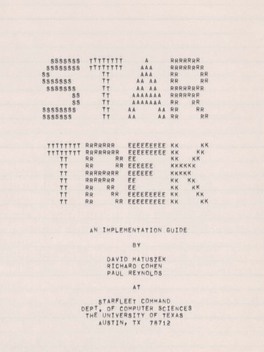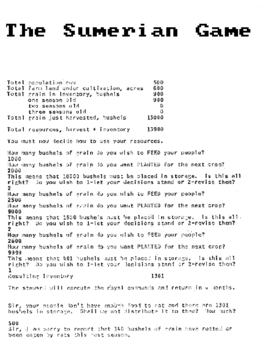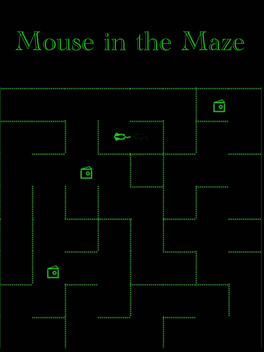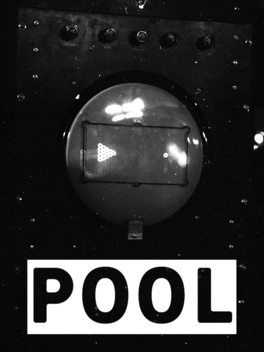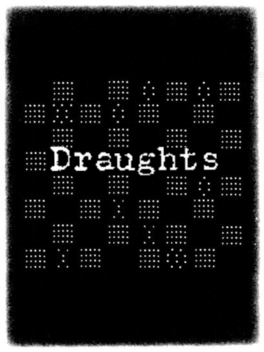New Legacy Computer Games
-
Tetris
1991
-
Tetris
1991
Tetris
1991
Tetris for Fujitsu OASYS series word processors. It was featured in many brochures of compatible models. -
Prince of Persia
1991
-
Tetris
1988
-
Tetris
1985
Tetris
1985
star 7.5The original version of Tetris was created by Alexey Pajitnov for the Elektronika-60 computer. It was never released commercially. It was also playable on the successor DVK-1 and DVK-2 computers, although it is unknown whether that is a different version, or simply the same code running on a different computer. Minor visual differences are present, but the gameplay is the exact same. -
Pac-Man
1984
-
Frogger
1984
-
Dig Dug
1983
-
Avon
1982
Avon
1982
An Interactive Fiction adventure by Jon Thackray and Dr. Jonathan Partington for the IBM System/370 'Phoenix' mainframe system at the University of Cambridge. -
Dig Dug
1982
-
Yakyuuken
1979
Yakyuuken
1979
One of the very first erotic video games ever released. Gameplay is comprised of a strip variation of rock-paper-scissors, based on a concept popularized by "Konto 55-gou no urabangumi wo buttobase!", a variety show which ran from April 27, 1969 to March 29, 1970. Players set how many articles of clothing they would like their opponent Megumi to wear, and after each victory she removes one piece until she is nude. Originally released for Sharp MZ-80K systems on cassette and sold at Personal-computer Shop Kouchi, it was later ported to Sharp MZ-700 in a bundle with Breakout clone 'Rowdy-Ball', and as a type-in program published in 'MZ-700 Joyful Pack.' -
Alto Trek
1978
Alto Trek
1978
Multiplayer game, developed for Xerox Alto, where each player uses their own Alto workstation to control a starship. The objective of the game is to destroy the enemy without being destroyed. A player can choose between of being a Klingon, Romulan, or Terran. The game can be played by one player, but there will be no enemy to destroy. -
Star Trek
1973
Star Trek
1973
A version of Star Trek ported by Dave Matuszek, Paul Reynolds and Richard Cohen for the CDC 6400/6600 computer systems at the University of Texas. Unlike the version published by David Ahl in BASIC, this version was written independently in FORTRAN, however many of the changes in this version would go on to influence subsequent versions along side the more accessible version found in Ahl's book. -
The Sumerian Game
1964
The Sumerian Game
1964
The Sumerian Game is a text-based strategy video game of land and resource management. It was developed as part of a joint research project between the Board of Cooperative Educational Services of Westchester County, New York and IBM in 1964–1966 for investigation of the use of computer-based simulations in schools. It was designed by Mabel Addis, then a fourth-grade teacher, and programmed by William McKay for the IBM 7090 time-shared mainframe computer. The Sumerian Game has been described as the first video game with a narrative, as well as the first edutainment game. As a result, Mabel Addis has been called the first female video game designer and the first writer for a video game. -
Mouse in the Maze
1959
Mouse in the Maze
1959
A game where players place maze walls, bits of cheese, and (in some versions) martini glasses by way of a light pen interacting with the screen. -
Pool
1954
Pool
1954
A game of pool (billiards) developed by William George Brown and Ted Lewis in 1954 on the MIDSAC computer, intended primarily to showcase the computing power of the MIDSAC. "The game displayed a 2-inch rendition of the pool cue for the players to line up their shots and ran a simulation of the colliding and ricocheting balls in real-time, implementing a full game of a cue ball and 15 frame balls for two players. Graphics were drawn in real-time on a monochrome 13" point plotting X-Y display, the screen being updated by the program 40 times a second (that is, in a normal in-game situations with 2 to 4 balls moving at once). However, for time constraints, the table and its pockets weren’t drawn by the computer graphics, but were rather drawn manually onto the display using a grease pencil." - Norbert Landsteiner for masswerk.at -
Bouncing Ball
1953
Bouncing Ball
1953
The first known game incorporating graphics that updated in real time, rather than only when the player made a move, was a simulation of a bouncing ball created by Massachusetts Institute of Technology (MIT) student Oliver Aberth for the Whirlwind I computer. He began creating the simulation in February 1951, before the computer was completed in April. It allowed users to adjust the frequency of the bounces with a knob, and sometime between late 1951 and 1953 he made it into a game by adding a hole in the floor for players to aim for. -
Checkers
1952
Checkers
1952
Strachey's program inspired Arthur Samuel to develop his own checkers game in 1952 for the IBM 701 and although the IBM 701 machine on which he developed his Samuel Checkers program was among the most powerful computers of its time, its memory was not sufficient to game out every possible outcome of each move. Samuel got around this limitation by introducing what is now called “alpha-beta pruning,” a scoring system that allowed the program to evaluate the likelihood of winning from certain positions without playing them out to the end of the game. Like a human player, Samuel Checkers looked as many moves ahead as it could and made its decisions from there. -
Draughts
1952
Draughts
1952
A game of draughts (a.k.a. checkers) written for the Ferranti Mark 1 computer by Christopher Strachey at the University of Manchester between 1951 and 1952. In the summer of 1952, the program was able to "play a complete game of Draughts at a reasonable speed". -
Mate-in-Two
1951
Mate-in-Two
1951
Robot Chess is an early chess game in which the user can play against an AI. The AI is only powerful enough to compute "mate-in-two" problems and thus the game didn't represent a full game of chess. Players would enter moves of the Ferranti Mark 1 and the computer would print out the response move. The simulation ignores some chess rules such as en passant, promotion and castling.
